Key Takeaways
- Mosquito buzzing isn’t meant to annoy you; it’s the sound of their wings beating incredibly fast.
- Mosquitoes hover near your ears because they’re attracted to your exhaled carbon dioxide, body heat, and specific skin odors.
- Certain factors, like heavy breathing, higher body heat, skin chemistry, clothing color, and even blood type, make some people mosquito magnets.
- Simple strategies—using repellents, choosing protective clothing, removing standing water, and improving airflow—can effectively reduce mosquito encounters.
- Professional pest control services are a reliable solution if home remedies aren’t enough to tackle persistent mosquito issues.
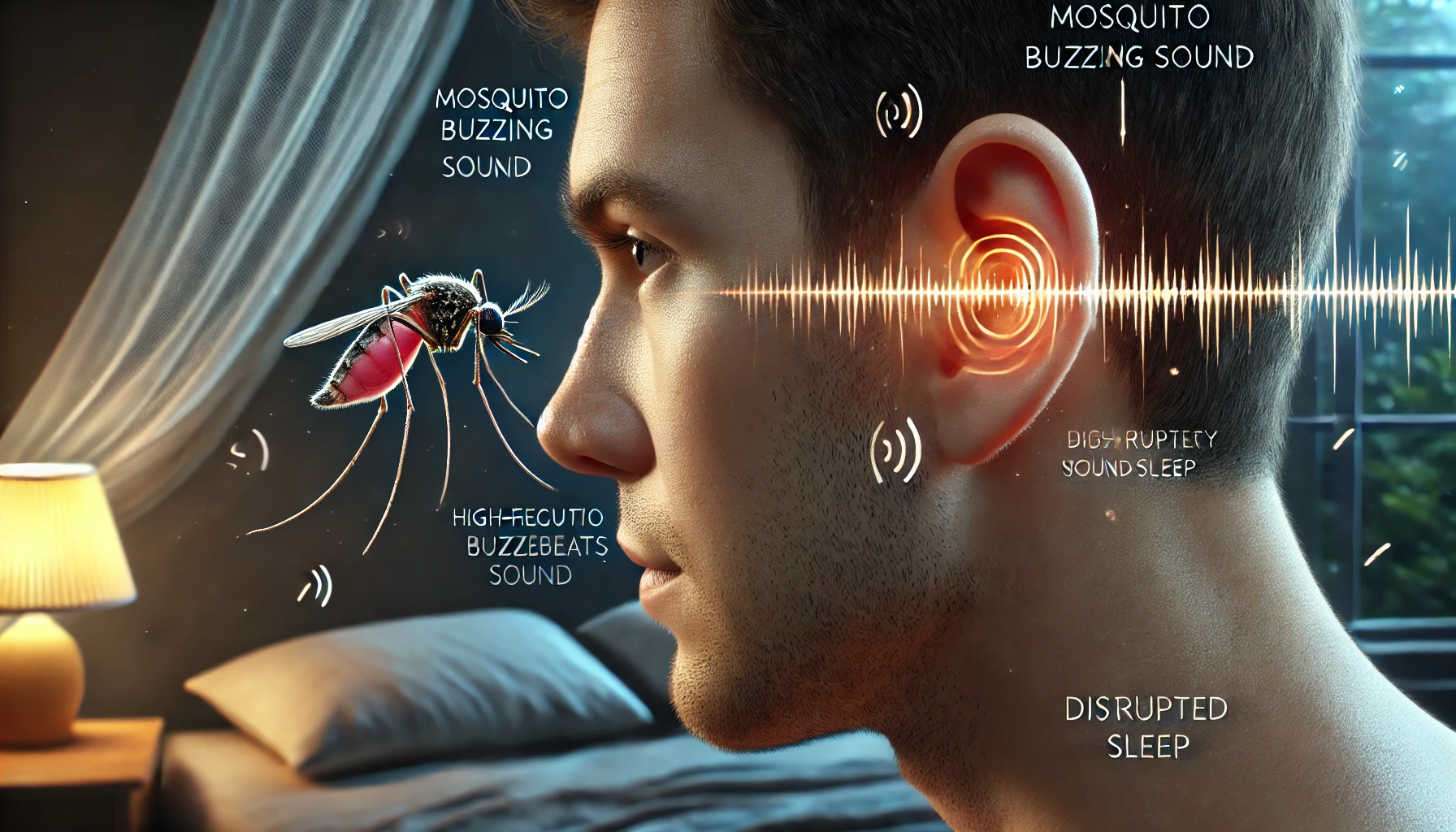 Imagine this: You are settling in bed after a long day, the room is silent, and you are about drifting. Suddenly – a small piercing sound jerk you wake up. You swat go aimlessly in darkness, but the mosquito dodges every swipe easily. Why do mosquitoes insist on resonating at all places around your ears?
Let us fall into the real reasons behind this disturbed landscape.
Imagine this: You are settling in bed after a long day, the room is silent, and you are about drifting. Suddenly – a small piercing sound jerk you wake up. You swat go aimlessly in darkness, but the mosquito dodges every swipe easily. Why do mosquitoes insist on resonating at all places around your ears?
Let us fall into the real reasons behind this disturbed landscape.
What’s Behind That Annoying Buzz?
First off, mosquitoes aren’t buzzing around your ears just to drive you crazy, although it feels exactly like that sometimes. That familiar, high-pitched whine is caused by their tiny wings flapping at a mind-boggling rate—up to 600 beats per second! Both males and females create this sound, but let’s face it, we mostly notice the females. Do you know why? Because female mosquitoes are on a mission: they’re looking for blood, specifically yours. Female mosquitoes depend on blood to produce their eggs. You could say the buzzing is the mosquito’s saying, “Dinner time!”—except you’re the dinner. This buzzing isn’t just random noise; it’s also how mosquitoes communicate. Male mosquitoes, who thankfully don’t bite, track down females by tuning into their distinctive wingbeat frequencies. Those rapidly flapping wings create vibrations that allow mosquitoes to hover and dodge your frantic swats easily. They’re tiny aerial acrobats performing just to frustrate your sleep.But Seriously, Why Your Ears?
You might wonder, “Why can’t mosquitoes buzz near my feet instead?” Great question. The truth is, mosquitoes don’t specifically love your ears—they’re drawn to your head because of the carbon dioxide you exhale. Each breath is like sending up a tiny smoke signal that mosquitoes detect from up to 50 feet away. Your face and head emit more heat and carbon dioxide signals, making them mosquito magnets. Here’s the kicker: Your ears have thin skin and plenty of blood vessels close to the surface, giving off extra warmth and subtle chemical odors mosquitoes find irresistibly inviting. So the mosquito buzzing feels annoyingly close because it genuinely is close—circling your head and looking for the perfect landing spot. It’s not just about your breath either. Your skin emits lactic acid, ammonia, and other odors mosquitoes love. And guess what? The natural bacteria on your skin can also release scents that mosquitoes find appealing. Simply put, your head is broadcasting an open invitation—especially at your ears.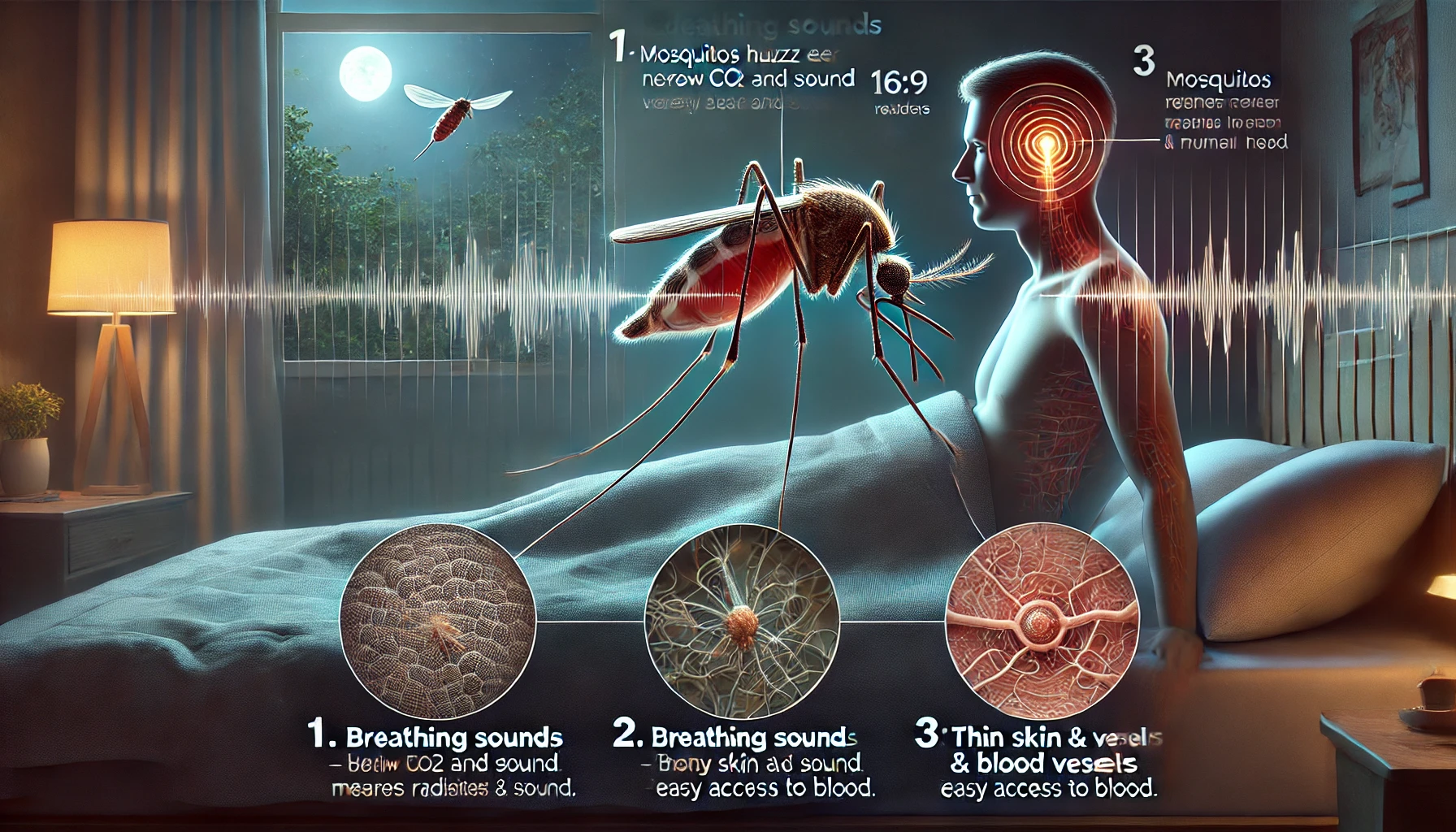

Not getting a solution?
Get your free pest control estimate today!Are Mosquitoes Picking Favorites?
- Have you ever noticed mosquitoes seem way more attractive to some people than others? Honestly, you might be onto something. A few factors explain why mosquitoes might single you out from the crowd:
-
Carbon Dioxide Output: People who exhale more CO₂—like larger individuals, pregnant women, or those who recently exercised—tend to attract more mosquitoes.
-
Body Heat and Sweat: Higher body temperature and perspiration make you easier for mosquitoes to locate and target.
-
Your Unique Skin Chemistry: Variations in lactic acid, ammonia, and other skin-emitted compounds make some people more appealing to mosquitoes.
-
Clothing Choices: Wearing dark colors makes you more visible to mosquitoes compared to lighter clothing, increasing your chances of getting bitten.
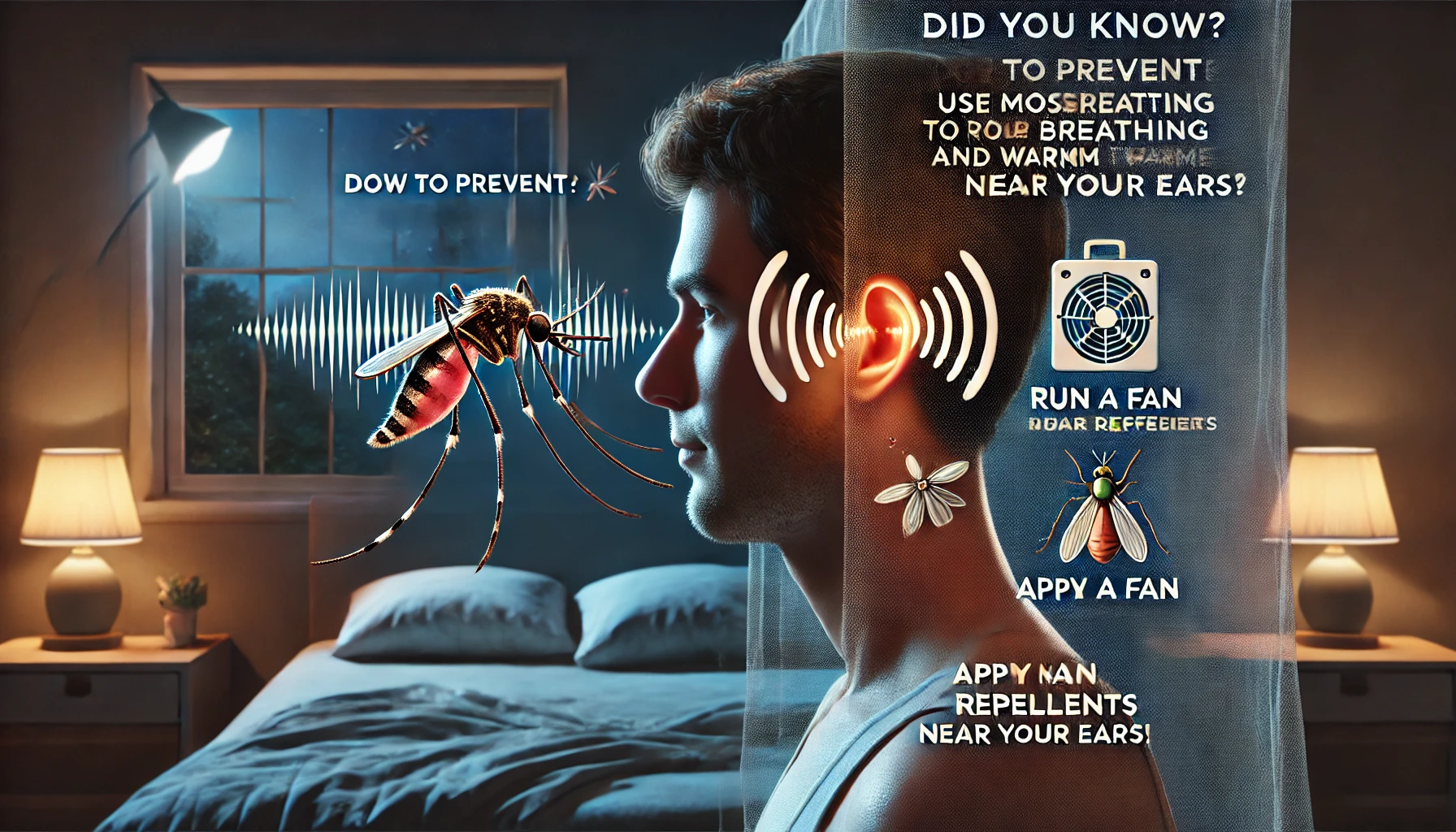
They’re Not Trying to Ruin Your Day (But It Sure Feels Like It!)
As annoying as mosquitoes are, they aren’t deliberately trying to sabotage your sleep or your outdoor relaxation. They’re just following instincts honed over millions of years of evolution. Buzzing and biting are simply their ways of surviving and reproducing. You might feel personally targeted—especially at 2 AM—but mosquitoes are just doing mosquito things. Surprisingly, mosquitoes aren’t great flyers and usually stay close to vegetation or the ground. But what they lack in flying skills, they more than makeup for with their remarkable ability to detect your presence from afar. So, their persistence around your head isn’t malicious; it’s purely biological.Here’s How You Keep Those Pesky Buzzers Away
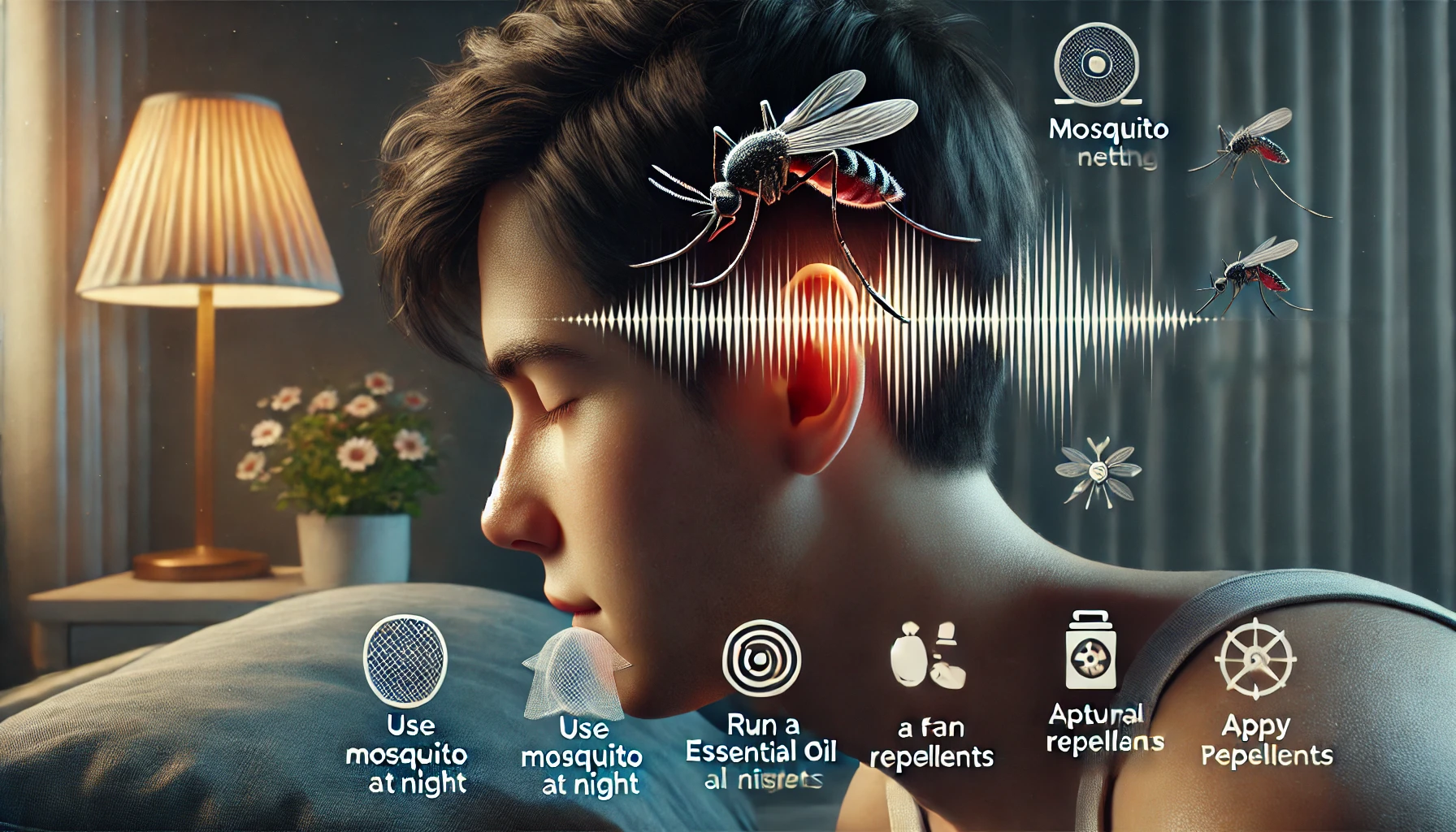 Fortunately, you don’t have to resign to nightly battles with mosquitoes. A few practical measures can help you reclaim peaceful nights and mosquito-free evenings outdoors:
1. Mosquito Repellents Are Your Best Friend
DEET, picaridin, and oil of lemon eucalyptus repellents seriously work wonders. Apply them before going outside, especially at dawn and dusk when mosquitoes are most active.
2. Wear the Right Clothes
Long sleeves and pants aren’t exactly summer fashion favorites, but they offer a simple barrier mosquitoes struggle to breach. Light-colored clothing can also make you less noticeable to these pesky insects.
3. Get the Air Moving
Mosquitoes are surprisingly weak flyers. A household fan can disrupt their flight patterns, making it challenging for them to zero in on you.
4. Remove Standing Water
Mosquitoes breed rapidly in stagnant water. Draining water from flower pots, gutters, birdbaths, or even old tires dramatically reduces mosquito populations around your home.
5. Secure Your Home
Make sure all windows and doors have intact mosquito screens. Sleeping under a mosquito net can also provide a mosquito-free sleep, especially if you live in a mosquito-prone area.
Fortunately, you don’t have to resign to nightly battles with mosquitoes. A few practical measures can help you reclaim peaceful nights and mosquito-free evenings outdoors:
1. Mosquito Repellents Are Your Best Friend
DEET, picaridin, and oil of lemon eucalyptus repellents seriously work wonders. Apply them before going outside, especially at dawn and dusk when mosquitoes are most active.
2. Wear the Right Clothes
Long sleeves and pants aren’t exactly summer fashion favorites, but they offer a simple barrier mosquitoes struggle to breach. Light-colored clothing can also make you less noticeable to these pesky insects.
3. Get the Air Moving
Mosquitoes are surprisingly weak flyers. A household fan can disrupt their flight patterns, making it challenging for them to zero in on you.
4. Remove Standing Water
Mosquitoes breed rapidly in stagnant water. Draining water from flower pots, gutters, birdbaths, or even old tires dramatically reduces mosquito populations around your home.
5. Secure Your Home
Make sure all windows and doors have intact mosquito screens. Sleeping under a mosquito net can also provide a mosquito-free sleep, especially if you live in a mosquito-prone area.
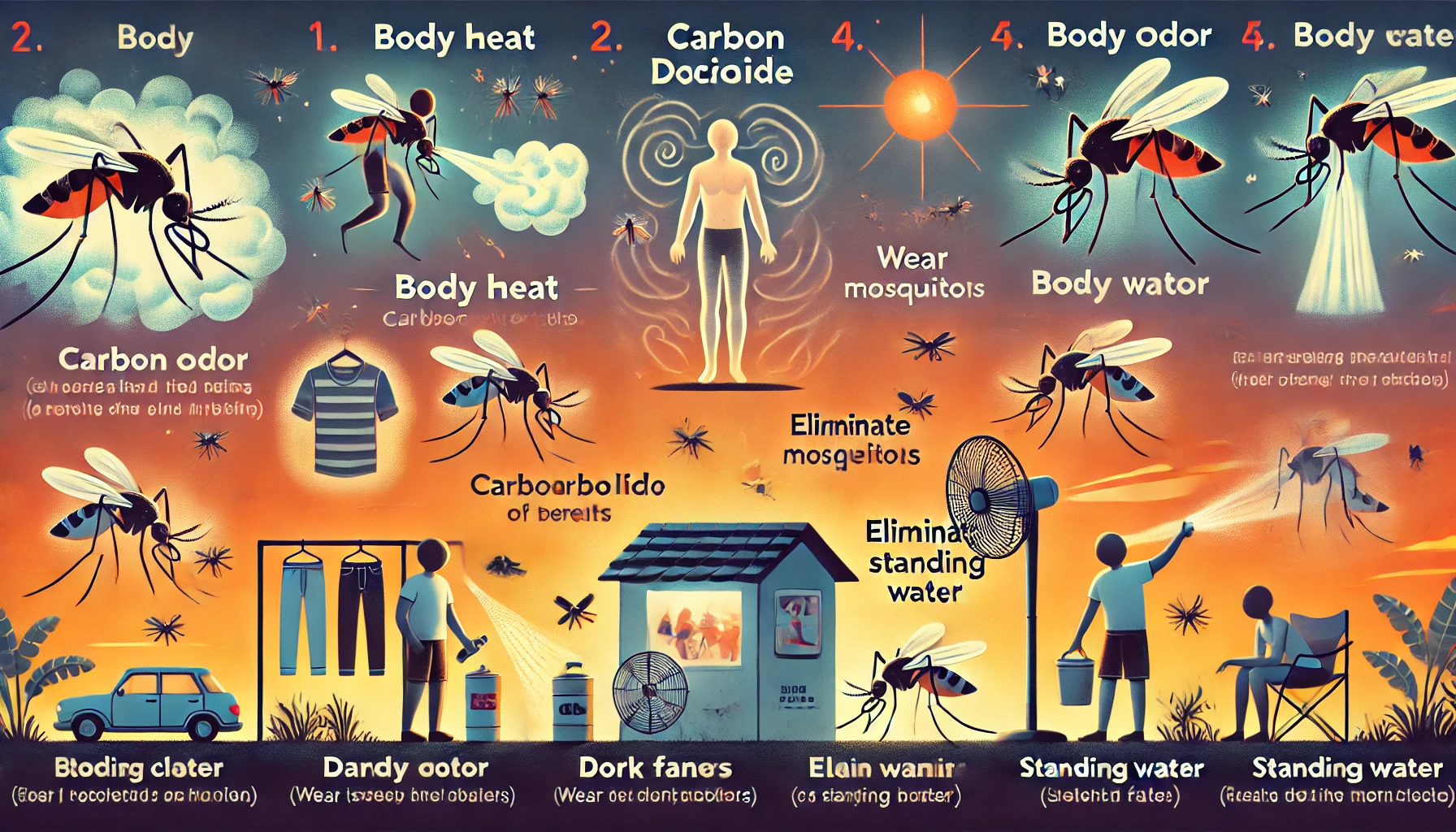 6. Call in the Pros if Needed
When mosquitoes seem to defy every DIY solution you try, it might be time to bring in professional pest control services. Treatments like mosquito misting or targeted insecticide applications can drastically reduce mosquito numbers, making your home livable again.
Taking these steps doesn’t just mean fewer annoying buzzes—it also significantly lowers your risk of mosquito-borne illnesses like West Nile and Zika, which remain genuine concerns throughout the United States. So, next time that mosquito buzzes annoyingly close, you’ll know exactly why—and, more importantly, how to stop it.
If you feel things have gone out of control, it is advised to contact pest control professionals. Our team can provide a customized approach to protect your home effectively.
6. Call in the Pros if Needed
When mosquitoes seem to defy every DIY solution you try, it might be time to bring in professional pest control services. Treatments like mosquito misting or targeted insecticide applications can drastically reduce mosquito numbers, making your home livable again.
Taking these steps doesn’t just mean fewer annoying buzzes—it also significantly lowers your risk of mosquito-borne illnesses like West Nile and Zika, which remain genuine concerns throughout the United States. So, next time that mosquito buzzes annoyingly close, you’ll know exactly why—and, more importantly, how to stop it.
If you feel things have gone out of control, it is advised to contact pest control professionals. Our team can provide a customized approach to protect your home effectively.
Visit our Species, Control, and DIY Guide sections for additional resources on mosquito and ways to tackle a mosquito infestation.





